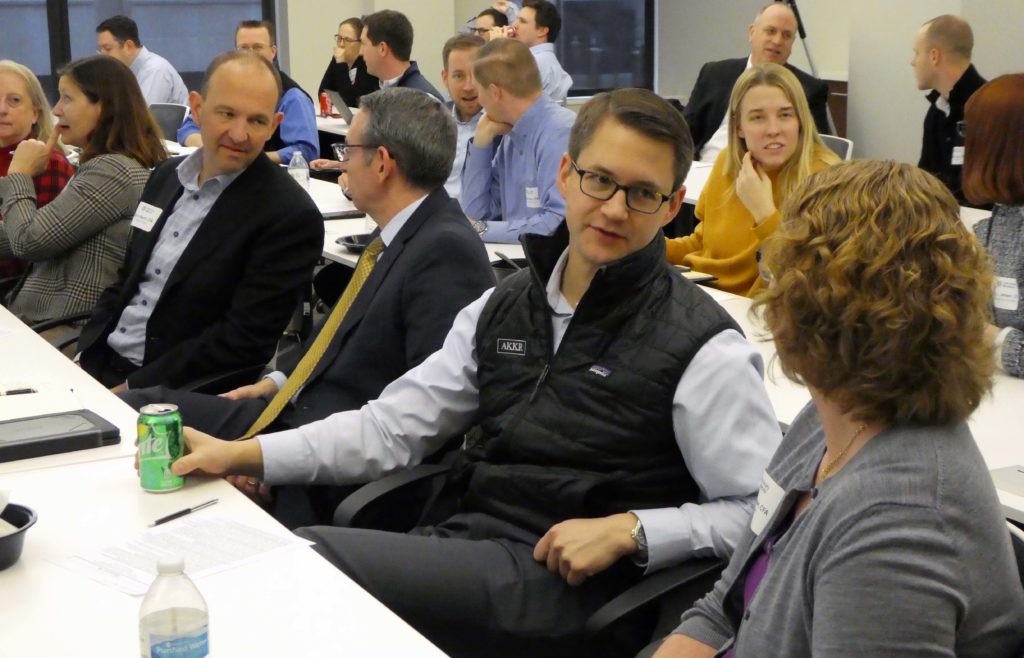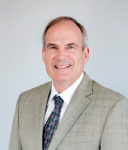By Matt Chruscielski, Society intern, recent University of St. Thomas MBA graduate and CFA level III candidate

It’s a new year which means it’s time for resolutions to become better versions of ourselves. One thing I’m sure we all struggle with is managing our time. Much like losing ten pounds, it’s something many of us want, but few achieve. Balancing time between family, career and ourselves can seem like we are on a treadmill repeating the same steps over and over without getting closer to our long-term goals. In the Managing Me session put on by CFA Society Minnesota last week, University of Minnesota, Carlson School of Management Professor, Arthur Hill, talked about how it is possible to identify the trivial things that eat up our time. Time that could be spent doing the important tasks on our to-do list.
In the hour session, Professor Hill led an engaged audience through an interactive presentation on the six steps to better manage ourselves: aim, sort, select, do, review and break, all summarized below. Professor Hill’s process encourages one to write on sticky notes to help visualize the steps and ideas, because what’s in our heads does not seem as daunting once it is written down.
Aim: Define roles and responsibilities. Set daily, weekly monthly and longer-term goals that are regularly assessed. Schedule more difficult tasks early in the day and save easier or favorite tasks for later making up energy with passion.
Sort: Process inputs through filters to assess when to respond. Professor Hill described six filters related to how valuable, actionable, incremental, outsourceable, timely and capable the input is along with a filter for new projects.
Select: Use goals to pick the best task from the list. Only consider tasks that we have the time, energy and tools to do in the present. Prioritize tasks based on importance and urgency. Avoid multitasking when we are trying to complete a task that has a high cognitive demand.
Do: Complete selected tasks with focus and discipline. Focus on just a few goals. Take breaks but avoid distractions and interruptions as it can take up to ten minutes to get fully focused once disturbed. Avoid reading emails first thing in the morning. Emails can quickly derail a day as some of the audience attested to having over a thousand emails unread emails that day.
Review: Reflect, evaluate, celebrate and improve. This is to help with Aim. Did we take a step closer to goals this day, week, month? What did we learn? How can we improve? This is where we can keep track of our habits and create new ideas the next time we Sort. Don’t forget to celebrate reinforcing the good habits we want.
Break: Take breaks to recharge both at and away from work. We need to take regular breaks to replenish our attention and refresh our energy throughout the day. Pursue activities that boost energy. When away from work, really unplug. Don’t sneak a peek at the work email. Live in the moment and enjoy the time with family and friends. Work on a hobby or new skill to keep the mind fresh.
Overall, the session provided helpful tips and tools, and will hopefully allow for better time management in 2019. As Professor Hill said, “we are all guilty of letting ourselves get overwhelmed by the amount of noise in our lives which is why it is so important to have someone teach us how to filter out the small things so that we can focus on what really matters.” Judging by the large crowd in attendance it seems we all can use a friendly reminder now and then.






